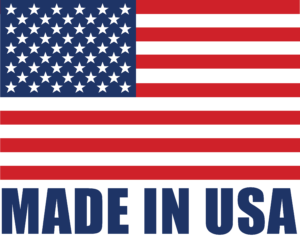If you’re a boat owner, you understand the importance of maintaining your vessel’s performance and longevity. One crucial aspect of this is keeping your boat’s propeller working optimally. In this blog post, we’ll explore what you can do to keep your vessel running smoothly by keeping your boat propeller in optimal performance.
1. Marine Growth
Marine growth, such as barnacles, algae, and seaweed, is one of the most common causes of boat propeller fouling. This growth can accumulate on the propeller blades and disrupt the flow of water, reducing your boat’s speed and fuel efficiency.
Here’s the best way to prevent it:
PropGlide is designed to prevent fouling on boat propellers and underwater metal surfaces. It is a specialized coating that acts as an effective barrier against marine growth, such as barnacles, algae, and other organisms.
2. Debris and Floating Objects
Debris in the water, such as plastic bags, fishing lines, and debris from storms, can get entangled in your propeller. This not only affects performance but can also lead to mechanical damage.
Here’s how to prevent it:
Avoid Debris-Prone Areas: Be cautious when navigating in areas where debris is common, especially after storms.
Regular Inspection: Periodically inspect your propeller for entangled debris and remove it immediately.
Propeller Guards: Consider installing propeller guards to protect your blades from debris.
3. Corrosion
Corrosion can weaken your boat propeller and reduce its efficiency. Saltwater environments are especially prone to this problem. To prevent corrosion:
Regular Maintenance: Keep your propeller well-maintained by cleaning it, applying anti-corrosion coatings, and inspecting for signs of corrosion.
Freshwater Rinse: Rinse your propeller with freshwater after each use in saltwater environments.
Sacrificial Anodes: Use sacrificial anodes to divert corrosion away from your propeller.
4. Impact Damage
Hitting underwater objects like rocks, sandbars, or submerged logs can lead to damage and fouling of your propeller. To prevent impact damage:
Navigation and Charts: Use navigational charts to avoid areas with potential hazards.
Slow Down in Shallow Waters: Reduce your speed in shallow or unknown waters to minimize the risk of impact.
Regular Inspections: Periodically inspect your propeller for signs of damage and address any issues promptly.
5. Oil and Grease
Oil and grease can accumulate on your propeller, leading to fouling. This can be the result of oil leaks from the engine or other sources. To prevent oil and grease fouling:
Fix Leaks: Address any oil or grease leaks in your boat’s engine promptly.
Use Oil Absorbent Materials: Place oil absorbent materials in your bilge to catch any leaks before they reach the water.
Regular Cleaning: Clean your propeller as part of your regular boat maintenance routine.
Protecting your boat’s propeller from fouling is essential for maintaining your vessel’s performance and longevity. By following these prevention strategies, you can keep your propeller in top condition and enjoy smoother, more efficient boating experiences. Remember that regular maintenance and inspection along with applying PropGlide are essential to keeping your vessels propeller working optimally.


